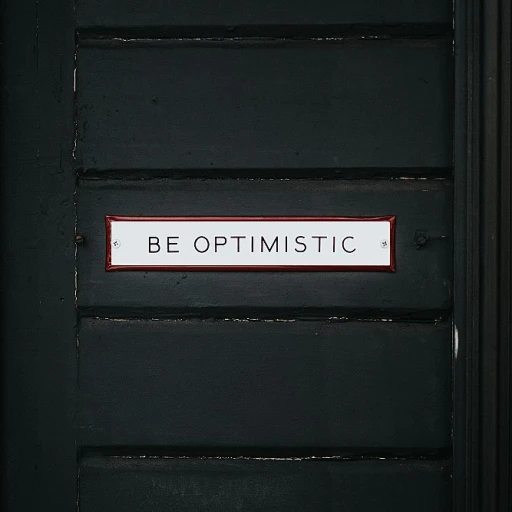Understanding Background Checks in Tech Hiring
Insight into Tech Hiring Processes
In the fast-evolving tech industry, understanding what goes into the hiring process is crucial for both job seekers and employers. One key component of this process is the employment background check. Employers rely on these checks to ensure that potential hires have the integrity and legal standing needed for the job. This includes assessing a range of records which may include a criminal or driving history.
For job seekers, it’s vital to recognize how their criminal record might impact their employment prospects. For those with convictions, such as a misdemeanor DUI, it’s natural to wonder about its potential ramifications and how it might 'show' during background checks. It's important to know that employers are looking for a fit that's both professional and responsible, and the details of your driving record can influence hiring decisions.
Tech companies aim to create work environments that emphasize trust and transparency. Employers often work with legal experts, such as a criminal defense attorney, to understand the implications of hiring individuals with a criminal background. This need for due diligence means understanding how DUI convictions and other offenses might affect job roles, especially those involving the operation of vehicles or sensitive data handling.
Employers must balance these considerations with fair employment practices. As you navigate these waters, exploring the role of transparency in hiring could provide valuable insights. For a deeper understanding of how companies can build trust during recruitment, consider diving into
modern leadership practices. Understanding both sides of the equation will help you better prepare for what lies ahead in your job search, setting you on a path towards a successful career in tech.
Key Elements Assessed in Background Checks
In the tech hiring landscape, background checks play a crucial role in the employment process. Understanding the components included can help potential employees and employers navigate this complex field effectively.
- Criminal Background: A clear understanding of a candidate’s criminal history is a foundational component of a background check. This includes any convictions, misdemeanors, or felonies, providing employers insight into any legal issues that a candidate may have faced, including DUI convictions.
- Driving Record: For positions where driving is a core responsibility, an employer will typically review a candidate’s driving record. This includes any offenses such as a misdemeanor DUI or driving under the influence, which can influence hiring decisions significantly.
- Employment History: This part of the check verifies past employment details provided by the candidate, ensuring the accuracy of job titles, responsibilities, and employment dates. This aspect helps employers to confirm the authenticity of a candidate’s professional background.
- Education Verification: Background checks often include an education verification component to ensure candidates have the qualifications necessary for the position in question. This includes verifying degrees, certifications, and any other relevant educational achievements.
- Reference Checks: Employers will typically contact the references provided by the candidate to gauge performance, reliability, and character. This qualitative data can sometimes be as crucial as the quantitative results of a criminal background check.
Understanding these elements can better equip job seekers with a DUI conviction to prepare for the hiring process and address any potential red flags that might arise. For a deeper dive into how misdemeanors, including DUIs, can impact background checks, visit
this resource on misdemeanor effects.
The Impact of a DUI on Background Checks
How a DUI Conviction Affects Background Checks in Tech Hiring
Understanding how a DUI (Driving Under the Influence) conviction might appear on a background check is critical for job seekers in the tech industry. A DUI can significantly impact employment opportunities, though the exact consequences depend on various factors, including the nature of the offense, the specific position applied for, and the laws of the state.
A DUI conviction will generally appear on an applicant's criminal record and can be flagged during a criminal background check. Many employers in the tech sector conduct comprehensive background checks that may include a search of both criminal history and driving records, especially if the job role involves driving responsibilities. It is essential to note that a misdemeanor DUI, as opposed to a felony, might carry different implications during the hiring process.
Some potential employers might view a DUI record as a red flag, interpreting it as a sign of poor decision-making skills or a potential risk to the company's safety culture. The level of concern may vary depending on the employer's policies and the specific job role: high-responsibility positions or those requiring close customer interaction could result in more stringent checks.
Nevertheless, the context of a DUI conviction matters. A single, outdated DUI may be viewed less harshly compared to multiple offenses or more serious criminal convictions. Employers might also consider the time that has passed since a DUI conviction along with any evidence of rehabilitation or improved behavior when making hiring decisions.
For those facing a DUI background check, it is advisable to seek guidance from a defense attorney who specializes in DUI cases. They can offer insights into how to handle disclosure of such convictions to potential employers and may provide strategies to mitigate the impact on employment prospects.
When considering how a DUI may influence hiring, it's beneficial to keep in mind that many employers balance potential risk with fair hiring practices. Transparency about past offenses, alongside demonstrating growth and accountability, can sometimes offset the negative impact of a criminal record in the tech industry.
Legal Considerations for Employers
Legal Aspects Surrounding DUI Records in Employment
Understanding the legal landscape is crucial when it comes to how a DUI conviction might affect employment opportunities. Employers are often tasked with navigating complex legal frameworks when considering a candidate's criminal record, which can include a DUI.
Given the potential impact of a DUI on a background check, employers must carefully evaluate what the law permits in terms of accessing and using such information. This involves understanding what will show up on a background check and the rules that govern the disclosure and consideration of criminal backgrounds in hiring.
Several legal considerations come into play:
- Fair Credit Reporting Act (FCRA): Under the FCRA, employers must obtain the candidate's explicit consent before conducting a criminal background check. Additionally, if a DUI conviction turns up and might impact the hiring decision, the employer must provide a copy of the report to the job seeker along with a summary of rights under the FCRA.
- State-Specific Laws: Some states have laws that restrict how far back a DUI can be considered. For instance, in certain jurisdictions, a misdemeanor DUI might not appear on a background check after a set number of years. Employers need to be vigilant about respecting these regional regulations to avoid legal complications.
- Ban the Box Initiatives: These laws, implemented in several regions, prevent employers from asking about criminal records, including DUIs, at early stages of the hiring process. They aim to ensure that candidates are considered based on their qualifications first, before any past offenses are weighed.
Employers must balance these legal requirements with risk management, ensuring they comply with all regulations while making informed hiring decisions. Consulting with a legal professional or attorney specializing in employment law might be beneficial in understanding the nuances of utilizing a DUI record in employment checks.
Strategies for Job Seekers with a DUI Record
Proactive Approaches for Job Seekers with a DUI History
Navigating the job market with a DUI conviction on your record may seem daunting, but there are strategic steps you can take to improve your chances of securing employment. Understanding your rights, being transparent, and utilizing professional guidance are pivotal in managing this hurdle.
Firstly, it is essential to be aware of what might appear on your background check. A misdemeanor DUI can be considered a serious offense and typically shows up on criminal background checks, which many employers scrutinize during the hiring process. By knowing this, you can better prepare for potential discussions with prospective employers.
Here are a few strategies that can be effective:
- Consult a Legal Advisor: Seek assistance from a criminal defense attorney to understand the implications of your DUI record. They can advise you on any opportunities to expunge or seal the record, which may prevent certain details from showing on a background check.
- Rehabilitation and Character References: Demonstrate your commitment to rehabilitation and growth by providing character references from trusted sources like previous employers, mentors, or community leaders. These references can help ease concerns a potential employer might have regarding your driving record and reliability.
- Be Transparent: When discussing your criminal background with employers, honesty is crucial. If a DUI offense is likely to be discovered during background checks, address it upfront during the interview process. Explain the circumstances, what you learned, and the steps you've taken to prevent future occurrences.
- Focus on Skills and Experience: Emphasize your qualifications and why you are the best candidate for the job despite the conviction. Highlight your relevant skills, experience, and any positive work history to draw attention away from your past dui convictions.
- Continuous Improvement and Education: Engage in professional development and gain certifications in your field to increase your qualifications. Employers value candidates who show initiative in learning and growing, regardless of past mistakes.
By approaching employment with a strategy that combines legal counsel, character showcasing, transparency, and skill emphasis, job seekers with a DUI record can mitigate the potential negative impact of their criminal history on hiring decisions. This balanced approach can enhance your employment prospects while ensuring you're presenting yourself as a competent and responsible candidate.
Balancing Fair Hiring Practices and Risk Management
Creating Equilibrium in Tech Hiring Processes
In navigating the intricacies of tech hiring processes, organizations must find a balance between fair hiring practices and prudent risk management, especially when dealing with potential employees who have a DUI conviction on their record. This is a delicate endeavor that requires thoughtful consideration and adherence to legal frameworks.
- Consider Legal Guidance: Employers should consult with a defense attorney well-versed in employment law to ensure their background checks, especially those involving a criminal record, comply with jurisdiction-specific regulations. Understanding the nuances of what will appear in a background check and how these factors can legally impact hiring decisions is critical.
- Implement Individualized Assessments: Rather than adhering to blanket policies regarding DUI convictions, employers are encouraged to perform individualized assessments. This approach considers how a criminal background, including a misdemeanor DUI or driving influence offense, relates to the job industry's specific requirements.
- Evaluating Job Requirements Against Background: Employers must weigh the nature of the offense against the job responsibilities. For instance, a DUI might have significant implications for roles involving driving company vehicles. In such cases, assessing the potential risks against the candidate’s qualifications becomes crucial.
- Transparency and Communication: It is vital for employers to maintain transparent communication with potential hires about their background check processes and any findings. Open dialogues not only enhance trust but also provide candidates the opportunity to clarify and discuss any concerns regarding their driving record or past convictions.
- Strengthening Policies and Practices: To support fair hiring, companies should regularly review and update policies on how criminal history, particularly DUI convictions, influences hiring decisions. Policies should reflect an organization's commitment to equal employment opportunities while managing potential operational risks.
Employers who thoughtfully assess the interplay of criminal backgrounds in the tech sector can foster inclusive hiring processes that protect organizational integrity and offer fair opportunities to all job seekers.














